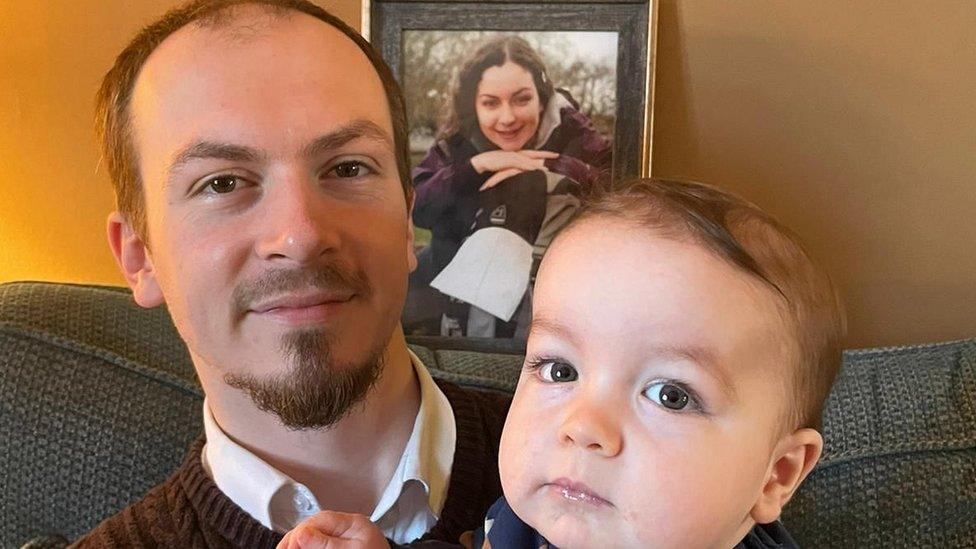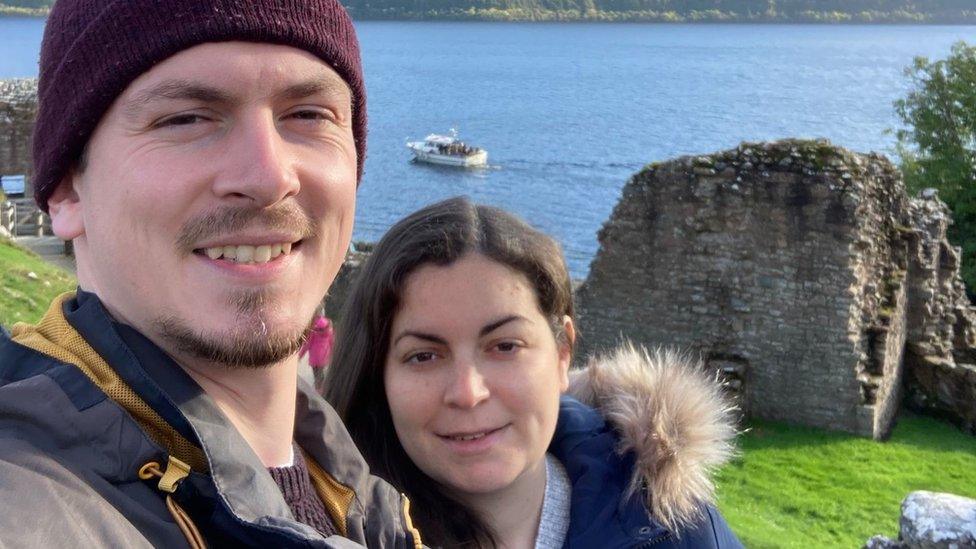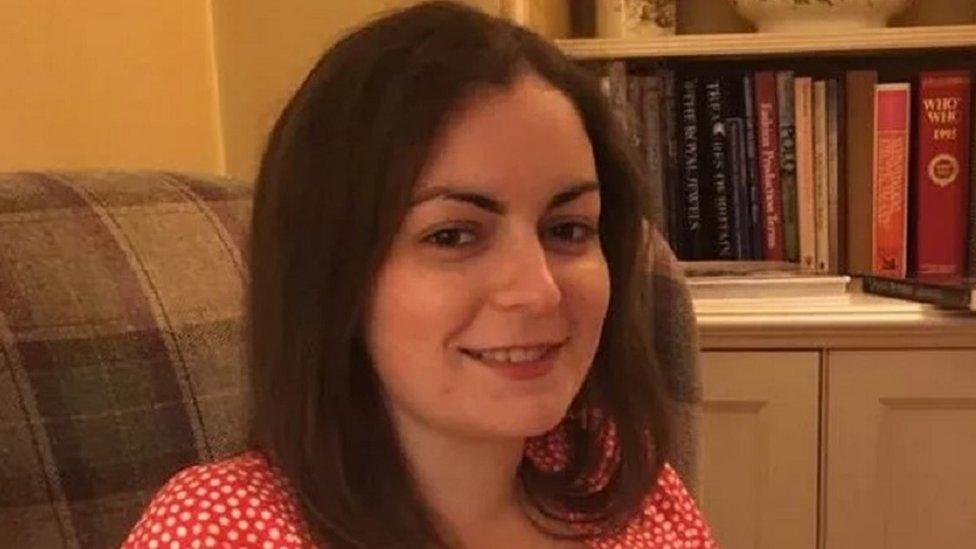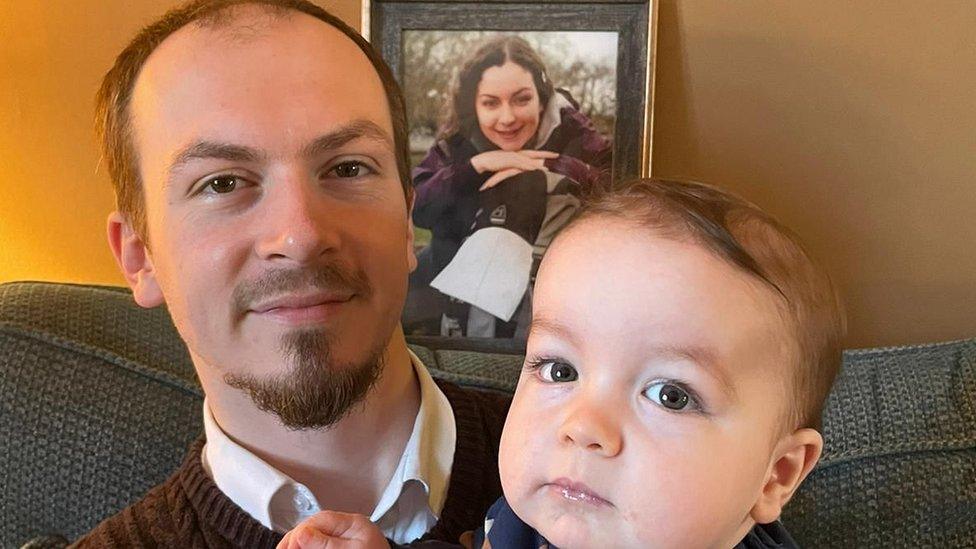New mother who died seconds after birth was 'so excited' to meet baby
- Published

Aaron Horsey with his son, Tim, and a picture of his wife Bernadette
A new mother said "I'm so excited" seconds before she went into cardiac arrest and died after her baby was delivered, an inquest has heard.
Bernadette Horsey, 31, died seconds after giving birth to her son Tim in a planned Caesarean section at the Royal Derby Hospital on 19 January 2022.
A pathologist told the inquest he could not find a clear of cause of the biomedical scientist's death.
Doctors had previously raised no concerns about her health.
Her husband, Aaron Horsey, previously told the BBC the couple had been allowed a moment to look at their new son before his wife, who worked for Nottingham University Hospitals (NUH) NHS Trust, became unwell.
Mrs Horsey, from Beeston in Nottinghamshire, had chosen to have her baby in Derby in part due to concerns over maternity care services in Nottingham, he said.

Mrs Horsey died in January 2022
On Thursday, Derby Coroner's Court heard from Prof Simon Kim Suvarna, who said he could find no definitive diagnosis as to why Mrs Horsey died during a post-mortem examination.
Dr Martyn Traves and Dr Rebecca Robinson, a consultant anaesthetist and consultant obstetrician who were carrying out the Caesarean, had previously told the court they said they were "certain" Mrs Horsey had suffered an amniotic fluid embolus, causing her to go into cardiac arrest in a matter of seconds.
An embolus can occur when amniotic fluid gets into the maternal bloodstream.
Dr Robinson told the court Mrs Horsey was initially "well" when Tim was born.
"I remember hearing Bernadette saying 'I'm so excited' as I was delivering him, so from my point of view I had no concerns, and was about to drop the screen," she said.
"I saw Aaron and Bernadette both smile, and look at each other and smile, and I heard Bernadette say 'it's a boy'.
"What happened next happened very suddenly."

Mrs Horsey worked as a biomedical scientist for Nottingham University Hospitals (NUH) NHS Trust
However, Prof Suvarna said he could find no evidence that an embolism took place.
"I came to a conclusion that there was no absolute slam dunk diagnosis," he said.
"If you asked me to put a bet on it [prior to the post-mortem], I would have put money on this being an amniotic fluid embolism.
"I was running parallel to the clinicians' opinion up until I found no results."
Prof Suvarna said Mrs Horsey's cause of death was categorised as "unascertained".
When asked by Louise Pinder, assistant coroner for Derby and Derbyshire, whether she should follow the clinicians' opinion, Prof Suvarna said this was a matter for the court.
"I fully accept that the clinicians have got a view, I can understand that view as that's where I started as well, but if I have no evidence, I have difficulty in making the case to go any further," he said.
The inquest is due to conclude later on Friday.

Follow BBC East Midlands on Facebook, external, on X, external, or on Instagram, external. Send your story ideas to eastmidsnews@bbc.co.uk, external.
- Published4 October 2023

- Published21 December 2022
